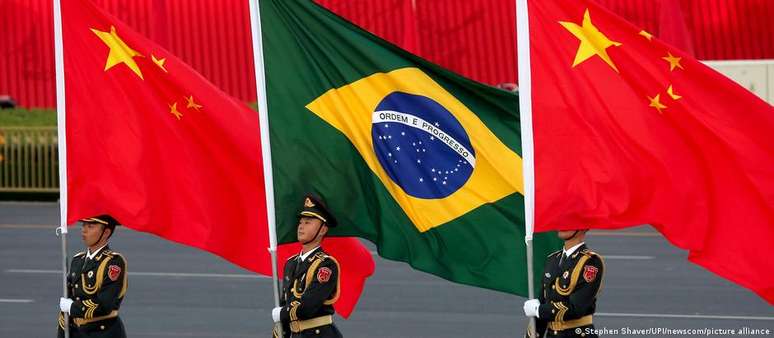Large democracies such as Brazil are economically dependent on Beijing, but this does not automatically mean that they support its totalitarian policies. The West must keep them on its side, Alexander Görlach opines. After the confrontation between liberal democratic systems and totalitarian systems, especially visible in the polarization between the United States and the People’s Republic of China, the countries of the so-called “Global South” will play a decisive role. They have come to occupy the center of interest especially in the context of the sanctions that the democratic world seeks to impose on Russia because of its attack on Ukraine, in violation of international law.
Despite being nominally among the largest democracies in the world, states such as Brazil and India have not positioned themselves unequivocally in favor of the country under military aggression – at the forefront of not falling into the discontent of Moscow and its most powerful ally, Beijing.
Critics see in this, above all, a lack of moral quality and a flaw in the democratic compass. Indeed, the reasons are more varied, as both Brasilia and New Delhi are suspicious of a global polarization between Chinese and Americans aimed at dividing the world into two spheres.
Western hypocrisy
Whether through trade, investment or loans, China is today by far the largest and therefore most important partner for the nations of the Global South, generally followed by the United States, Japan and the European Union. Identifying with one side of the potential new cold war would have serious consequences for economic development, from Chile to Indonesia, and could lead to rapid political destabilization of these countries.
Furthermore, the memory of Western imperialism and colonialism is still fresh among them. In other words: no one “swallows” that the West is today the defender of values it has despised for centuries. Furthermore, the United States and its allies are seen as cynics and hypocrites: sometimes they denounce human rights violations, other times they ignore them completely.
The attack on international law carried out by Washington with the invasion of Iraq, the torture chambers set up in Abu Ghraib and Guantánamo under the pretext of the “war on terror”, will tarnish the reputation of the United States for decades to come.
Beijing does not win hearts
A positioning of Brazil, India, Indonesia or Chile as – if you want to call it that – autonomous powers or elements of a multipolar world order does not automatically mean an expression of sympathy for Beijing or Moscow. This is the good news.
Due to existing intertwining, however, these countries will not be able to escape Chinese influence, in the same way as European nations or Australia, whose trade deficits with Beijing are increasing year by year. At the same time, these same states seek their security policy guarantee in Western democratic alliances, especially with the United States.
It is precisely these alliances that have grown and consolidated over decades that give Washington an edge in the current global situation. Beijing has no such ties, and recognition of economic realities is far from a sign that the People’s Republic under its leader Xi Jinping has won the hearts of the Global South.
Sanctions after an attack on Taiwan?
Beijing’s best hope at the moment is that the countries of the South maintain a certain neutrality. This does not mean at all that they are interested in advocating for a new world order in which totalitarian China sets the tone. For Xi and his leading cadres, however, this already represents a major victory. For example, if he decides to attack the island republic of Taiwan, in the current context there will certainly not be a reaction in the form of sanctions against his regime.
It is undeniable that the phase of globalization marked by free trade and the maximization of profit is now regressing. Instead, security considerations and geopolitical interests will guide the world economy into its next phase.
At this point, it is also necessary to be accompanied by countries generally in favor of greater independence from an increasingly authoritarian China, but at the same time eager to maintain their own positive economic and social development. Otherwise, risk reduction – decoupling from Beijing to contain damages will not succeed.
—
Alexander Görlach is Senior Fellow of the Carnegie Council for Ethics in International Affairs and Research Associate at the Institute of Religion and International Studies at the University of Cambridge.
Text reflects the author’s opinion, not necessarily DW’s.
Source: Terra
Rose James is a Gossipify movie and series reviewer known for her in-depth analysis and unique perspective on the latest releases. With a background in film studies, she provides engaging and informative reviews, and keeps readers up to date with industry trends and emerging talents.







